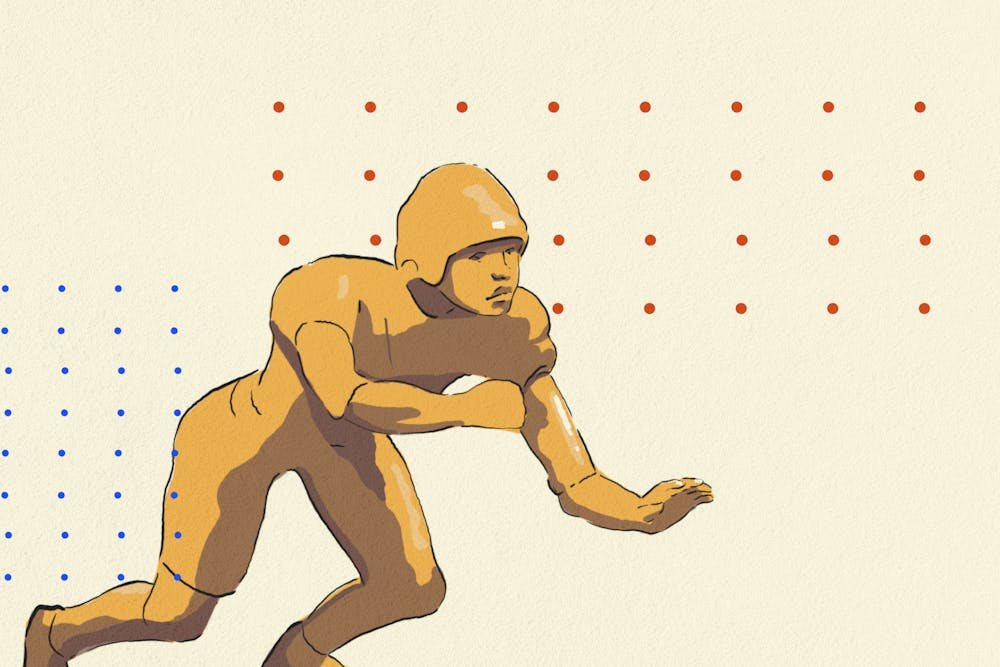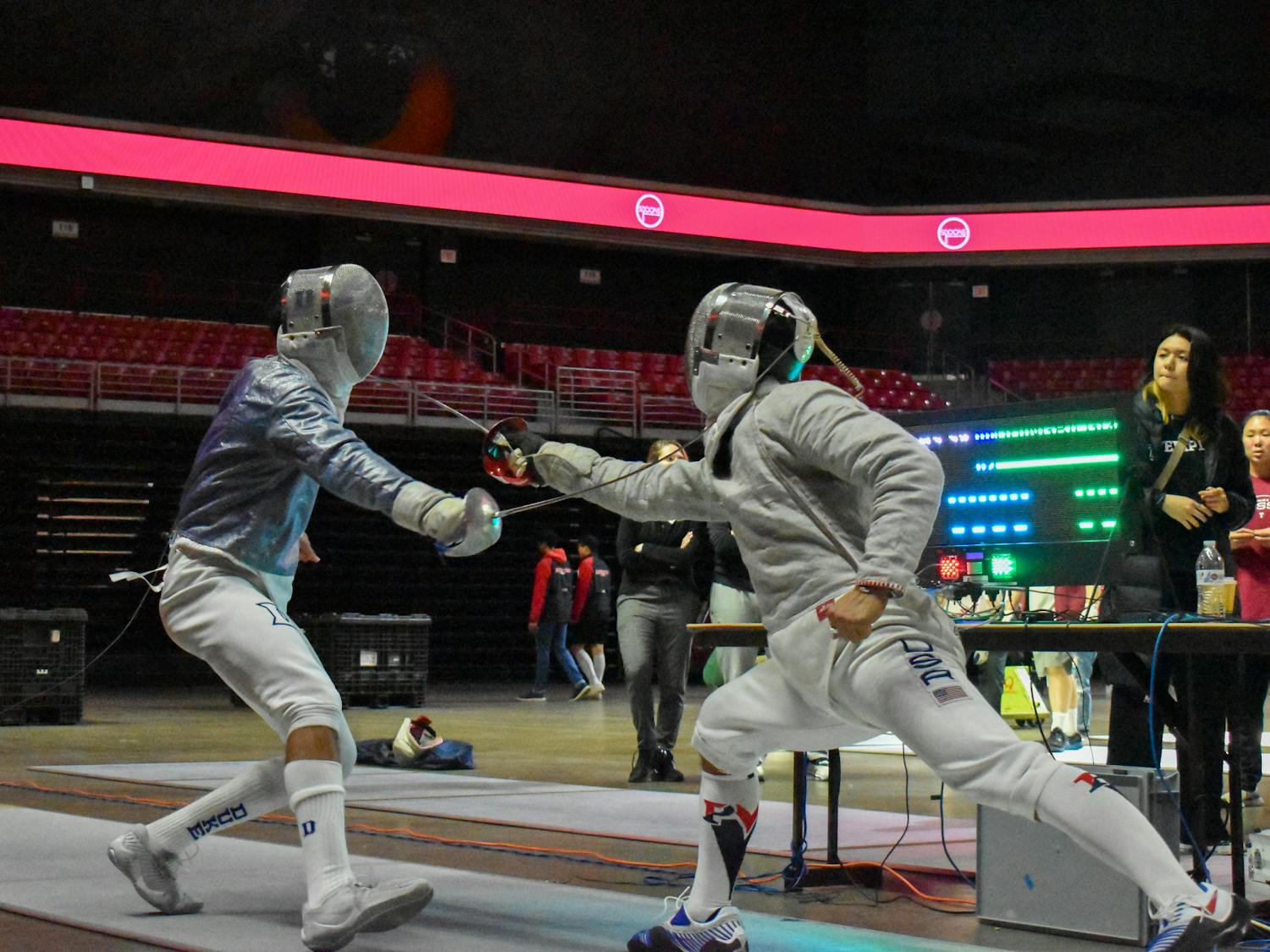John Outland first stepped on Franklin Field just two years after it was built. Nearly 125 years after his final snap on Franklin Field, Outland’s legacy still is one of the most remarkable to touch Penn football.
Outland, ironically, was born to a Quaker family in Hesper, Kan. He grew up playing football and baseball and played both for some time at the collegiate level.
For his undergraduate education, Outland initially attended Penn College in Oskaloosa, Iowa. A member of the school’s first ever football team, Outland led the Statesmen in scoring as captain his sophomore year.
By 1895, Outland ventured back to the Sunflower State to attend the University of Kansas, where he played both football and baseball in the 1895 and 1896 seasons. Outland lettered as a tackle and led the Jayhawks to two winning seasons.
After the 1896 season, Outland chose to transfer to the University of Pennsylvania, where he could fulfill his dream of attending medical school. As a medical student, Outland was able to play football at an elite level.
Outland, a one-year captain at Penn, was named a consensus All-American in the 1897 season as an offensive tackle. A year later, Outland was named a consensus All-American at halfback. Outland is one of few players in the history of college football to be declared an All-American at two different positions.
Outland had success not only as an individual during his time as a Quaker, but also as a leader of a Penn team that went a combined 35-4-2 from 1897-99.
After graduating from Penn, Outland further cemented his athletic legacy by beginning his coaching career. Outland stayed in Pennsylvania for a year to coach football at Franklin & Marshall. In his one season at the helm in 1900, the team had a mediocre 4-5 record.
RELATED:
John Heisman's time at Penn highlights his college football legacy
Reliving Penn football's 2013 marathon four-overtime victory over Dartmouth
Outland decided to return home to Kansas in order to practice medicine and coach football after just a year with the Diplomats. In 1901, Outland became the coach for Kansas football. The Jayhawks posted a 3-5-2 record in that season, and he then finished his coaching career at Washburn University. This was Outland’s most successful stint as coach, amassing a 14-5 record from 1904-05.
Throughout his years coaching, Outland was also able to run his own practice as a doctor. After retiring from coaching, Outland moved to Kansas City, Mo. and became a full-time surgeon at Trinity Lutheran Hospital. While working at the hospital, Outland remained involved in the world of college athletics by serving on Kansas’ athletics board. He also dabbled as a referee for college football.
One of the greatest accomplishments of Outland’s life was his service in World War I. Outland took an abrupt break from his successful medical career at home to serve his country abroad. Outland was a surgeon in the United States Army throughout the war.
Upon his return, Outland would leave his imprint on the world of sports for years to come. He became the Athletics Director at Kansas. Drawing inspiration from the Penn Relays, Outland instituted the Kansas Relays.
Additionally, at the numerous athletics meetings that Outland attended, he vocalized his support for increased recognition of linemen in college football. Outland was able to establish an award for the best lineman in college football on offense or defense. The first ever Outland Trophy was presented in 1946, and it has been awarded on an annual basis ever since. The award is known as the one of most prestigious distinctions that an offensive linemen or defensive tackle can earn.
Outland retired to Laguna Beach, Calif., where he died in 1947. Outland was laid to rest in his home state of Kansas alongside his parents. In 2001, he was inducted into the College Football Hall of Fame.
When the Outland Trophy is presented in Omaha, Neb. each January, a small piece of Penn history is brought to the national spotlight.









